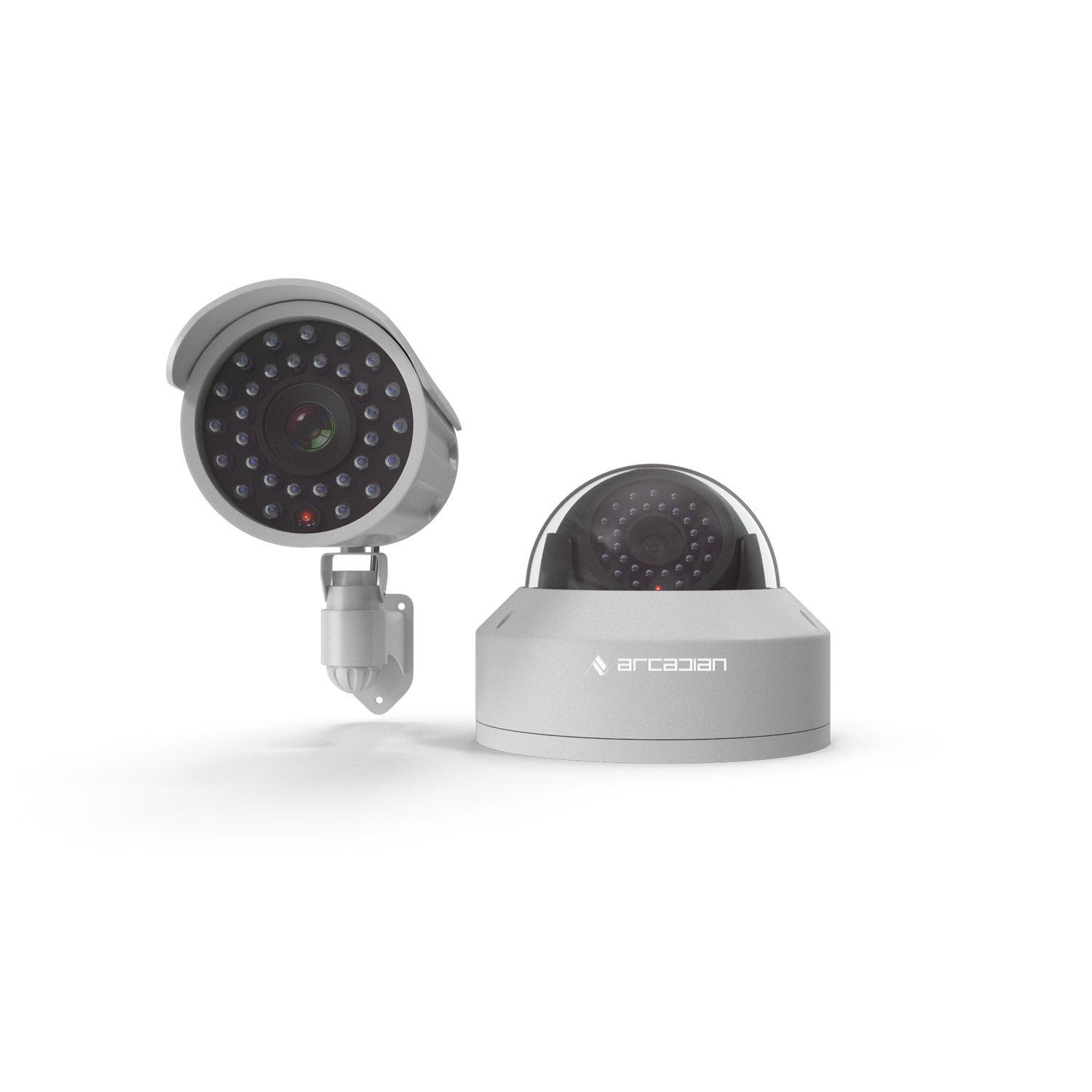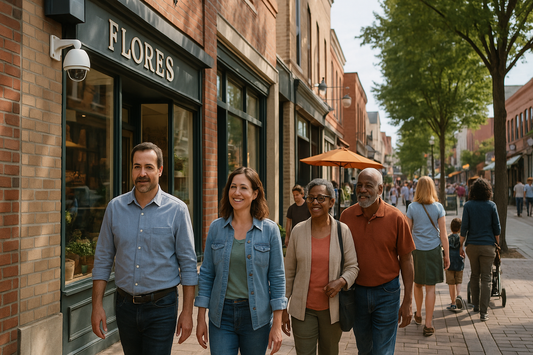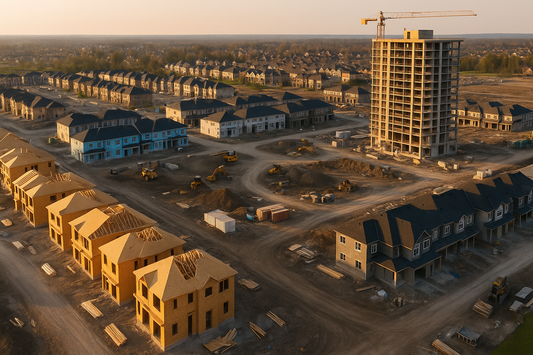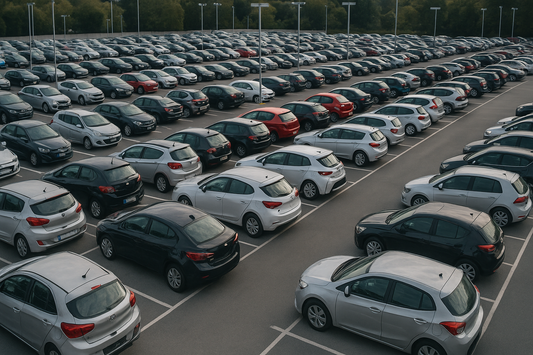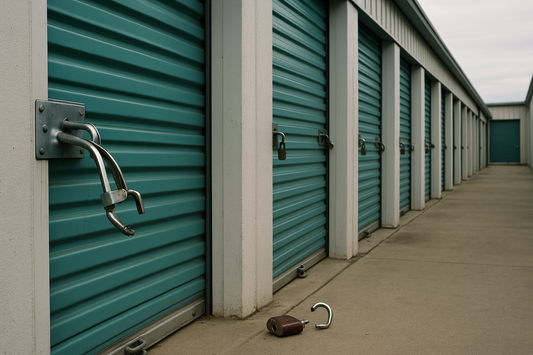How Hotels Can Prevent Theft and Vandalism with Cloud Surveillance
Hotels are designed to offer comfort, convenience, and security for guests. However, with high guest turnover, valuable assets, and frequent visitors, hotels can also be prone to theft and vandalism. Traditional security measures help, but cloud-based surveillance takes security to a new level, offering real-time monitoring, advanced analytics, and instant...

Hotels are designed to offer comfort, convenience, and security for guests. However, with high guest turnover, valuable assets, and frequent visitors, hotels can also be prone to theft and vandalism. Traditional security measures help, but cloud-based surveillance takes security to a new level, offering real-time monitoring, advanced analytics, and instant alerts that help hotel management prevent incidents before they escalate.
In this blog, we’ll explore how cloud surveillance can provide hotels with an effective, scalable, and proactive security solution that enhances both guest satisfaction and asset protection.
1. Real-Time Monitoring Across Multiple Areas
Hotels are complex environments with multiple zones requiring surveillance, from lobbies and hallways to parking lots and storage rooms. Cloud-based surveillance allows hotels to monitor these areas in real time, with all footage accessible through a single, centralized platform. Security personnel can observe activities across the entire property, identifying potential issues as they arise.
For instance, a hotel chain like Hilton could use cloud-based surveillance to monitor entrances, exits, and restricted areas in all their locations. The centralized access ensures security teams can maintain constant oversight and detect unusual behavior anywhere on the property, reducing the risk of theft or vandalism.
2. Instant Alerts for Suspicious Activity
Cloud surveillance systems equipped with AI-powered analytics detect and alert staff to suspicious activities, such as loitering in restricted areas or unauthorized entry into storage rooms. These alerts allow hotel security teams to respond immediately, preventing incidents before they result in losses.
Imagine Marriott Hotels using AI-driven cloud surveillance to monitor high-risk areas like baggage storage and back-of-house sections. If the system detects unauthorized access, it automatically sends an alert to security personnel, enabling a quick response to prevent theft or damage. By responding promptly, hotels can minimize disruptions and ensure guests feel secure.
3. Enhanced Security in Parking Lots and Outdoor Areas
Parking lots and outdoor areas are frequent targets for theft and vandalism, as these spaces are often out of direct sight. Cloud surveillance offers 24/7 monitoring and can be paired with motion detection to identify unauthorized entry or activity in these areas, deterring potential offenders.
For example, Best Western could use cloud surveillance to keep an eye on parking lots and perimeter areas. By setting up motion-activated alerts, the system notifies security of any unusual movement after hours. This not only helps prevent car break-ins and vandalism but also makes guests feel safer leaving their vehicles on the property.
4. Protecting High-Value Assets with Access Control Integration
Hotels store valuable items, such as maintenance equipment, linens, and technology in restricted areas. By integrating cloud surveillance with access control systems, hotels can ensure that only authorized staff can access these locations, reducing the risk of internal theft and protecting valuable assets.
For instance, a high-end hotel like Ritz-Carlton could combine cloud surveillance with access control for areas like supply rooms and IT centers. The system records every entry, providing a clear record of who accessed these areas and when. If unauthorized access occurs, the system can flag it in real time, helping hotel management quickly investigate and resolve potential issues.
5. Reducing Insurance Costs Through Enhanced Security
Many insurance providers offer reduced premiums for properties with robust security systems. Cloud surveillance can help hotels demonstrate their commitment to safety, potentially lowering insurance costs. Recorded footage also provides reliable evidence in the event of an incident, supporting claims and reducing liability.
A hotel chain like Holiday Inn could benefit from cloud surveillance by providing insurers with security measures that include real-time monitoring and access control. Insurance providers may view this as a lower-risk investment, reducing the hotel's liability and premiums. Additionally, recorded footage can serve as evidence in case of a guest dispute or claim.
6. Improved Staff Accountability and Performance
Cloud surveillance doesn’t only protect against external threats—it also enhances internal security by holding employees accountable. Knowing they are being monitored can deter employees from engaging in dishonest behavior, ensuring a safe and trustworthy environment for both guests and staff.
For instance, Hyatt Hotels could use cloud-based monitoring in areas like the front desk, storage, and service stations. This ensures employees follow security protocols and adhere to high service standards, which reduces internal theft and improves guest experiences. Management can review footage as needed to address concerns or provide additional training.
7. Scalable Security Solution for Multiple Properties
One of the primary benefits of cloud-based surveillance is its scalability, which allows hotel chains to monitor multiple locations from a single, centralized platform. With cloud surveillance, hotel chains can expand security operations seamlessly as they grow, ensuring each property receives consistent protection.
For a rapidly expanding hotel chain like Radisson, cloud surveillance allows security teams to monitor all properties from a single dashboard, providing centralized oversight and enabling uniform security standards across locations. This scalability ensures that as the chain grows, security remains a priority without additional hardware or infrastructure changes.
8. Data-Driven Insights to Strengthen Security Protocols
Cloud surveillance systems collect valuable data on security trends, which hotels can analyze to improve protocols. By identifying common incidents, high-risk zones, and frequent times for security issues, hotel management can make data-backed adjustments to optimize security coverage and prevent future incidents.
For instance, Sheraton Hotels could analyze surveillance data to understand peak times for incidents in specific areas, such as entrances or hallways. By adjusting staffing schedules and increasing surveillance during these times, Sheraton can proactively strengthen its security protocols and deter theft or vandalism.
Jessica’s Story: How Cloud Surveillance Enhanced Security at a Boutique Hotel
Jessica, the manager of a boutique hotel in a busy downtown area, noticed increasing incidents of theft and unauthorized access. After implementing Arcadian.ai’s cloud-based surveillance system, Jessica saw immediate improvements in both security and guest satisfaction.
One evening, the system’s AI analytics flagged an individual loitering near a restricted storage room. Jessica’s team received an instant alert and was able to address the situation promptly, preventing what could have been a costly theft. Additionally, the system’s remote access feature allowed Jessica to monitor the hotel’s perimeter, parking area, and entrances even while off-site. Guests appreciated the added security, and the hotel’s reputation for a safe, welcoming environment flourished.
Ready to elevate security in your hotel? Discover how Arcadian.ai’s cloud-based surveillance solutions can protect your property, prevent theft, and enhance guest confidence. Schedule a demo today.
SEO Keywords and Tags:
- Cloud-based surveillance for hotels
- Preventing theft in hotel properties
- Vandalism prevention with cloud monitoring
- Real-time hotel security solutions
- AI-driven surveillance for hotel security
- Reducing hotel insurance costs with surveillance
- Arcadian.ai hotel security solutions
- Scalable surveillance for hotel chains
- Security protocols for hotels with cloud surveillance
- Best surveillance systems for hospitality industry

Security is like insurance—until you need it, you don’t think about it.
But when something goes wrong? Break-ins, theft, liability claims—suddenly, it’s all you think about.
ArcadianAI upgrades your security to the AI era—no new hardware, no sky-high costs, just smart protection that works.
→ Stop security incidents before they happen
→ Cut security costs without cutting corners
→ Run your business without the worry
Because the best security isn’t reactive—it’s proactive.
